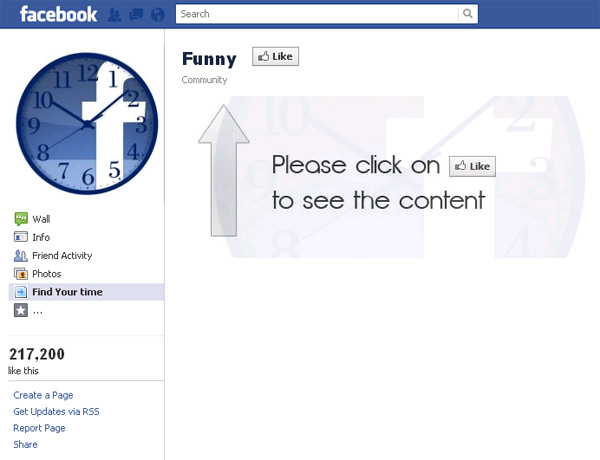300,000 Users Fall for ‘Hours Spent on Facebook’ Scam
Have you ever wondered how many hours you've spent on Facebook or other social media websites? If you have, you should keep a close eye on the latest malicious messages that claim they can provide an answer to this question.
Facecrooks advises Facebook users to be on the lookout for this scam that redirects users to rogue apps and survey sites that try to gather sensitive information.
“wooow now I have seen how many hours I spend on Facebook…to find your time click here,” reads the scam.
Once the link in the message is clicked, the user is taken to a Facebook page that tricks him into pressing the Like button associated with it. After that, the unsuspecting victim is taken to a site that requests permission to access profile information and even make posts on the customer’s behalf.
By providing it with all these permission, the malevolent app, in this specific scenario called Look3, is able to spread the scam message, relying on the trust factor that exists between social network friends.
Members of the popular social network are advised to install only apps from trusted sources and carefully analyze the permissions it requests before doing so.
Often advertised as being funny or outrageous, the rogue applications usually aren’t satisfied with obtaining information, instead they present the victim with a survey scam that earns the crooks a sum of money for each visitor.
At the time of writing, over 300,000 people already clicked the Like button on the phony page, which means that the plot does a great job in misleading them.
If you are among the 300,000, you can go to the Settings page and in the Apps menu you can remove the applications that may have been installed unintentionally. Also, scams and rogue apps can be reported to Facebook on their designated page or by pressing the Report button.
“wooow now I have seen how many hours I spend on Facebook…to find your time click here,” reads the scam.
Once the link in the message is clicked, the user is taken to a Facebook page that tricks him into pressing the Like button associated with it. After that, the unsuspecting victim is taken to a site that requests permission to access profile information and even make posts on the customer’s behalf.
By providing it with all these permission, the malevolent app, in this specific scenario called Look3, is able to spread the scam message, relying on the trust factor that exists between social network friends.
Members of the popular social network are advised to install only apps from trusted sources and carefully analyze the permissions it requests before doing so.
Often advertised as being funny or outrageous, the rogue applications usually aren’t satisfied with obtaining information, instead they present the victim with a survey scam that earns the crooks a sum of money for each visitor.
At the time of writing, over 300,000 people already clicked the Like button on the phony page, which means that the plot does a great job in misleading them.
If you are among the 300,000, you can go to the Settings page and in the Apps menu you can remove the applications that may have been installed unintentionally. Also, scams and rogue apps can be reported to Facebook on their designated page or by pressing the Report button.
Source: Softpedia

